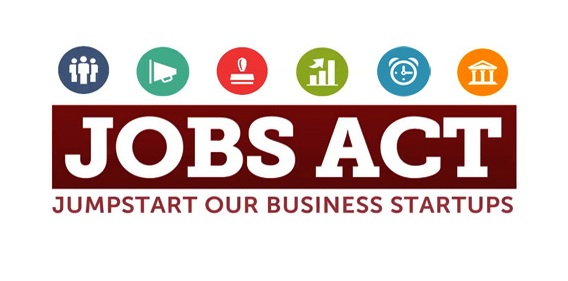[Editor’s note: The following article is by Ryan Caldbeck, the founder of CircleUp, an equity based crowdfunding website. He clearly has something to gain from the topic — but as an investor, he’s also particularly well-informed. So we’re running this guest post. But, for reference, check out these criticisms by the SEC and some politicians.]
Last week, the U.S. House of Representatives passed the JOBS Act, a bipartisan bill aimed at supporting small businesses by making it easier for them to access capital. A key feature of the bill enables crowdfunding, the process by which small companies raise growth capital from a large number of individual investors.
While many people are debating the impact of the bill on investors, what seems lost in the debate is what types of businesses are likely to benefit, and how crowdfunding can change the way we all think about early stage investing.
Today, startup investing is reserved for the 1%. Less than 1% of Americans are ‘angel’ investors and less than 1% of all small businesses receive outside equity investment. (This despite significant investor returns, according to the Angel Investment Performance Project). Within this narrow band, the distribution tightens further – a majority of all angel investments go to technology driven industries. And, 80% of angel investors are men. As a result, a vast majority of the economy – entrepreneurs, investors, and whole industries – are left out of this virtuous cycle.
Crowdfunding will open up new funding possibilities for these neglected areas of the economy. A good example is the consumer products industry, which comprises roughly 15% of the U.S. economy but less than 5% of the angel investment market. Investors like to invest in what they know – one reason technology is so well funded given the roots of angel investing in Silicon Valley. With a wider range of perspectives and backgrounds, crowdfunding investors will bring unique insights for investments in growing consumer brands that have early traction in the market.
Think of a $2 million revenue baby food company with 50 parents that are investors – they know and trust the brand, and now can help support the company reach the next level of growth. For small businesses, the benefit is more than just investment capital. Businesses will gain a passionate community of backers who can help grow the business through social media and word of mouth, important channels for small consumer companies.
Crowdfunding will increase, not decrease, transparency in this market. Today, as nearly every entrepreneur will tell you, the early stage investing process is isolated and opaque. Companies share information to one investor after another, all in separate private meetings, all with the goal of telling the ‘right story’ for that particular investor. Crowdfunding brings this process into a broader community space. A well-regulated crowdfunding platform prevents fraud by requiring companies to share their information widely, by conducting third-party background checks on entrepreneurs, and by providing the transparency necessary to allow for greater scrutiny from a diverse audience of investors. The “crowd” acts as a collective due diligence tool – each person contributing an independent view on the merit of the investment. Fraud thrives in the shadows, not in the light of a vibrant open market system.
Crowdfunding is the antithesis of the financial practices of the last decade. There are no credit default swaps, leverage multiples, or obscure fund structures standing between company and investor. It is direct. It is personalized. Investors actively seek out the companies they believe in, evaluate the merits of the investment on a case-by-case basis, and make an investment.
The Senate is expected to vote on their version of the bill early next week. They will rightly put some restrictions and oversight in place. Crowdfunding advocates know we are at the earliest stages of a long-term transition, and having sensible investor protections in place will help create lasting value as this market develops. Crowdfunding and appropriate oversight are not mutually exclusive.
Let us hope that the Senate joins the House and President Obama in support of crowdfunding. In a partisan election year, creating jobs and providing more opportunities for investors and small businesses shouldn’t be a controversial proposal.
Ryan Caldbeck is the founder of CircleUp, an equity-based crowdfunding website focused on providing growth capital for small private companies. Prior to CircleUp, he spent seven years focused on consumer product and retail-focused private equity at TSG Consumer Partners and Encore Consumer Capital.
